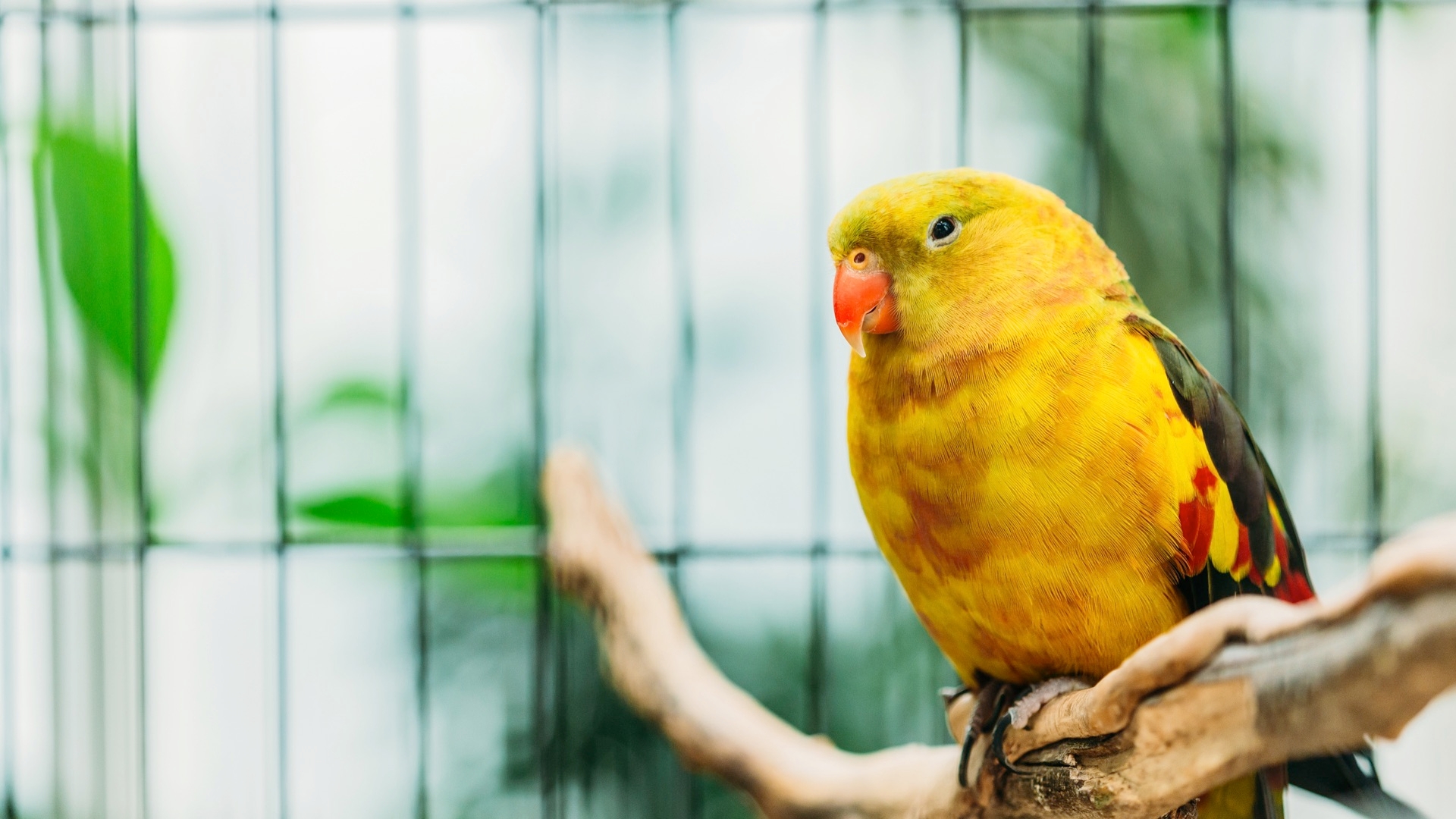Birds Kept as Pets:
Summary:
When choosing a pet bird, you should match a bird's attitude, temperament, size, activity level, and life span with your family, your home, and the amount of time you have to spend with your pet. You will also need to provide a safe, sturdy enclosure or cage for your bird.
Keeping your pet bird healthy helps to keep you and your family healthy.
Before choosing a pet bird
- Check your state, local, and property laws before adopting or purchasing a pet bird. Many governments have ordinances against certain pets because of noise, size, or public health risk.
- Identify a local veterinarian who has experience with pet birds (an avian veterinarian) to help you keep your bird healthy.
- Learn about the different types of birds and their personalities and attention needs before you bring one home. Birds are very intelligent and social animals that require a lot of attention. Also learn about the life span for the type of bird you are interested in as many birds can live for 20 years or more.
- Research how to properly care for your bird before purchase. Ask your veterinarian about the proper food, care, and enclosure or environment that is best for the bird you are selecting.
- Select a location for your bird's cage, perch, or enclosure. Pet birds need to be housed in a warm, draft-free location that has adequate lighting and is close to activity in the household.
How to choose a pet bird
When choosing a pet bird, you should:
- Match a bird's attitude, temperament, size, activity level, and life span with your family, your home, and the amount of time you have to spend with your pet.
- Pick birds that are bright, alert, and active. Birds should have smooth, sleek, and soft feathers that are free of debris or droppings. Birds who seem depressed, aren't moving around very much, or look dirty may be ill.
- Learn the signs of illness in a bird, which can include appearing sluggish or depressed, having ruffled feathers or areas of feather loss, abnormal breathing, and fluid running from its eyes or nose.
- When bringing new birds to a household that already has pet birds, be sure to keep the new birds separated for at least 30 days before introducing them to your existing birds. This will help prevent the new birds from passing disease to your existing animals. During this period of separation:
- Wash your hands with soap and water before working with each group of birds.
- Keep water and food dishes, toys, and other cage/perch equipment separate and clean.
- Within a few days after you buy or adopt your bird, take it to a veterinarian who has experience with pet birds (avian veterinarians) for a health visit and get advice on caring for your new pet. Return to the veterinarian for checkups and beak, nail, or wing trimmings, as recommended.
Importing pet birds into the United States
USDA regulates the importation of pet birds. Because of the risk of avian influenza (bird flu), USDA restricts the importation of pet birds from certain countries and enforces a 30-day quarantine for all imported birds except those that come from Canada. People interested in importing pet birds should visit the USDA non-US Origin Pet Bird Importation website.
How to house pet birds
- Provide a safe, sturdy enclosure or cage for your bird. Keep pet birds from interacting with all wild animals and insects such as mosquitoes. These animals and insects can carry diseases that can be spread to your pet birds.
- Do not allow your birds to fly or roam around the house without supervision. They could get accidentally trapped or hurt.
- Avoid housing pet birds in areas where food or drink is prepared, served, or stored, such as kitchens or dining rooms.
- Closely supervise any interaction of your birds with children or other pets to reduce the chance of injuries.
Clean and disinfect pet bird cages and equipment
- Keep bird cages, enclosures, and perches clean to prevent the build-up of droppings.
- Keep birds and their equipment out of kitchens and other areas where food is prepared, served, served, or consumed. Never use food preparation areas to clean habitats and supplies. Clean these items outside of the home when possible.
- If you clean habitats and supplies indoors, use a laundry sink or bathtub, and thoroughly clean and disinfect the area right afterward.
Learn how to stay healthy while cleaning your bird's cage.
Monitor your pet bird's health
- Visit a veterinarian who has experience with pet birds (avian veterinarian) for routine check-ups to keep your bird healthy and prevent infectious diseases.
- Sick birds may become thin, depressed or sluggish, have diarrhea, have fluid running from their eyes, or lose feathers. But birds can also carry germs that might make people sick without appearing sick at all.
- If your bird becomes sick or dies within a month after purchase or adoption:
- Contact your veterinarian.
- Inform the store, breeder, or adoption organization about the bird's illness or death.
- Consider waiting before you purchase or adopt another pet to give yourself time to clean any germs out of the cage or perch and to clean bird equipment.
- Do not reuse the cage, enclosure, perch, or equipment until it has been properly cleaned and disinfected.

